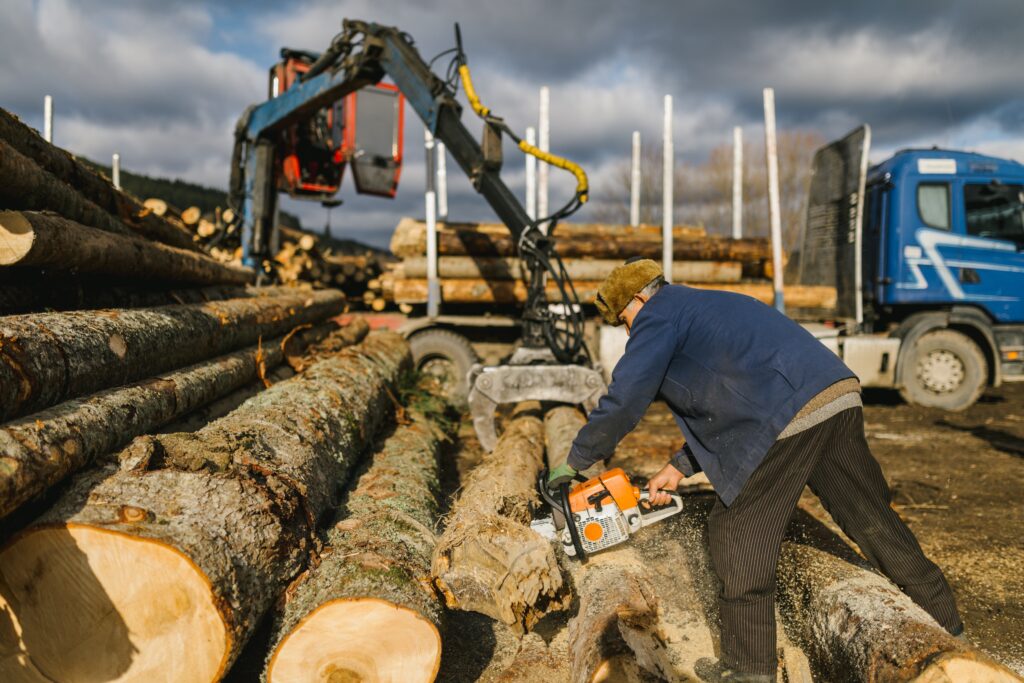Project Insights Report
Shock Proofing Yukon: Northern Entrepreneur Development Network
 Executive Summary
Executive Summary
In Canada’s North, entrepreneurship is important for local job creation and economic diversification. Because many entrepreneurs are Indigenous, their businesses also bring direct economic benefits to their communities. To support entrepreneurship, strong networks and access to training, mentorship and other supports are essential. However, rural entrepreneurs in the Yukon have less access to these resources. Unreliable internet and limited technology also pose challenges.
Yukon University recognized that it lacked connections with rural entrepreneurs, particularly Indigenous and female entrepreneurs. It sought to address these concerns through the “Shock-Proofing the Yukon: Northern Entrepreneur Development Network” project. The project focused on providing accessible, relevant, culturally appropriate training and tools for entrepreneurs in the Yukon. Yukon University partnered with Yukonstruct to develop an entrepreneurship network; improve entrepreneurs’ access to training, equipment and tools; enhance its relationship with rural and Indigenous communities; and build connections with governments and other funding organizations.
The project counted a number of successes, such as enrolling 12 organizations into its program and delivering 3 workshops with 55 participants, along with other activities such as webinars, an entrepreneur speaker series and other engagements. However, although a pilot network was established, the network did not progress, as the approach was not the best cultural fit. Other tangible project results included the hiring of local staff to the project, an increase in rural entrepreneur engagement with the university, and connections to national programs.
The project’s successes could be attributed to the willingness of the project team to be flexible and adapt, based on their community engagement. For instance, the team found it worthwhile to engage with fewer people more often rather than try to hit pre-determined metrics (e.g., number of mentors). Rather than delivering programs themselves as originally planned, the team realized that it was more appropriate to support rural organizations that wanted to do so. Taking the time to understand each community’s unique dynamics and context, as well as the role of local leaders in securing engagement, was important in the rural Yukon environment.
Key Insights
Twelve organizations joined the program, and 55 entrepreneurs participated in three workshops. Yukon University saw an increase in engagement from rural communities in its entrepreneurship programs.
The project benefitted from having two staff to travel to and engage in outreach in rural communities, but it took much longer than expected to build the relationships that laid the foundation for their work.
To succeed in rural Northern and Indigenous communities, it is important to understand the local contexts and needs and be flexible in adapting to address these needs.
 The Issue
The Issue
Supporting entrepreneurship in Canada’s North holds many benefits. Entrepreneurs create local jobs, help retain talent and contribute to community development. Their businesses may also help diversify the economy and build resilience against external shocks and pressures. In addition, because many entrepreneurs in Northern Canada are Indigenous, their businesses bring direct economic benefits to their communities.
Entrepreneurs with strong peer networks and access to training, mentorship and other resources are better positioned to succeed. However, residents of rural Northern communities have less access to support and tools than those in other areas. In the Yukon, specifically, entrepreneurs living outside of Whitehorse must travel long distances between communities, which makes it difficult to find and establish peer and mentorship connections. Limited access to reliable internet and technology adds to the challenge.
Yukon University, which provides services and support to Northern entrepreneurs, noticed that it lacked connections with rural entrepreneurs, mentors and coaches. In particular, low enrolment of Indigenous people and women entrepreneurs in its programs suggested the university was not meeting their needs.
A focus on accessible, relevant, culturally appropriate training and tools for entrepreneurs in the Yukon, established through strong connections with rural and Indigenous communities, would fill a major gap for entrepreneurship development for these communities.

 What We Investigated
What We Investigated
The project aimed to understand how to better serve and support rural and Indigenous entrepreneurs, mentors and coaches.
This project sought to:
- develop a network of support for entrepreneurs, to enable knowledge mobilization and mentorship;
- improve rural and Indigenous communities’ access to training, equipment and tools, including those provided by Yukonstruct;
- strengthen the university’s relationship with and improve participation of rural entrepreneurs by dedicating two staff to community outreach. Staff travelled to communities to explain the project, develop relationships and understand the unique needs and issues of each community;
- create connections and build relationships with Indigenous entrepreneurs, governments and others, including the Government of Yukon, government departments, Yukon University’s rural campuses, and funding and financing organizations, as well as out-of-territory programs and organizations.
 What We’re Learning
What We’re Learning
The project was successful in achieving a number of objectives. Success could be attributed, in large part, to the flexible, adaptive approach that the team took as the project unfolded.
Yukon University successfully enrolled 12 organizations in its program network. Three workshops (with 55 attendees) and two webinars were delivered, and an entrepreneurship speaker series was launched. A social media platform was built to communicate about events, research, tools and funding opportunities. A Yukon Innovation Prize was also awarded.
Other notable impacts were the hiring and subcontracting of work to community members, and an increase in involvement of rural communities with the university. The project also connected communities with national programs, linking them to tourism and economic development courses.
The initial goal of establishing a mentorship network did not move beyond the pilot stage. It was determined that the approach was not the right fit for Indigenous communities, where mentoring is relational and communal, unlike the Western approach, which focuses on the individual.
The project benefitted from having two outreach staff who travelled to communities for face-to-face meetings. However, it took much more time than anticipated to develop relationships and move beyond the communities’ assumptions that they were not just “parachuting in and out” with their project. Once the team had a greater understanding of the context, they made a few changes to the project’s approach:
Emphasize quality over quantity
Yukon University initially believed that mentorship opportunities could be developed quickly. Measurable target metrics (e.g., number of mentors) had been set. However, the team found that it was more worthwhile to build stronger relationships with fewer people through repeated meetings and engagement. The team also spent more time than expected providing ongoing one-on-one support to help entrepreneurs apply for funding, register their businesses, etc.
Support local implementation
The original plan was for Yukonstruct and Yukon University to deliver entrepreneurship programs. The project team realized it was more appropriate to support rural organizations and champions who wanted to deliver workshops, services and events themselves. This approach also strengthened entrepreneurship capacity within communities.
Understand community dynamics
The team found there was a disconnect in understanding what “entrepreneur” meant. They did a series of interviews with rural entrepreneurs, which were shared via social media, and this storytelling became important to the project. Similarly, taking time to understand each community’s unique dynamics and context, as well as the role of local leaders in securing entrepreneurship involvement, proved to be important.
 Why It Matters
Why It Matters
The project is relevant for entrepreneurship programs or policies in rural, Indigenous and Northern communities where distances are great, internet and technology challenges persist, and community members may hesitate to engage with resources available in other communities.
Taking the time to travel to communities to engage with local entrepreneurs and mentors requires extra time and effort, but doing so can help build relationships and overcome any distrust or hesitation. This approach also opens doors for entrepreneurs to connect with broader networks or funding opportunities. In fact, the project identified a need for microgrants for entrepreneurs aged 35+, who may not be eligible for youth grants.
Programs do not need to be delivered by external entrepreneurship experts in rural, Indigenous or Northern communities. Local organizations with the interest and capability, who are provided with the necessary resources and support, are better positioned to run workshops and events in their own communities.

State of Skills:
Supporting Indigenous and Northern Entrepreneurship and SMEs
Indigenous and Northern entrepreneurship and businesses play a crucial role in bolstering local economies by supporting economic diversification, job creation and community development.
 What’s Next
What’s Next
Yukon University continues to support innovators and entrepreneurs with funding, resources, expertise and incubation.
Have questions about our work? Do you need access to a report in English or French? Please contact communications@fsc-ccf.ca.
More from FSC
Building workplaces where neurodivergent workers thrive
Effective Employer Engagement in Skills Development: From Rhetoric to Solutions
Labour market implications for racialized youth
How to Cite This Report
Watkins, E. (2025). Project Insights Report: Shock Proofing Yukon: Northern Entrepreneur Development Network, Yukon University. Toronto: Future Skills Centre. https://fsc-ccf.ca/projects/shock-proofing-yukon/
Shock Proofing Yukon: Northern Entrepreneur Development Network is funded by the Government of Canada’s Future Skills Program. The opinions and interpretations in this publication are those of the author and do not necessarily reflect those of the Government of Canada.




